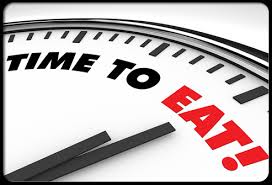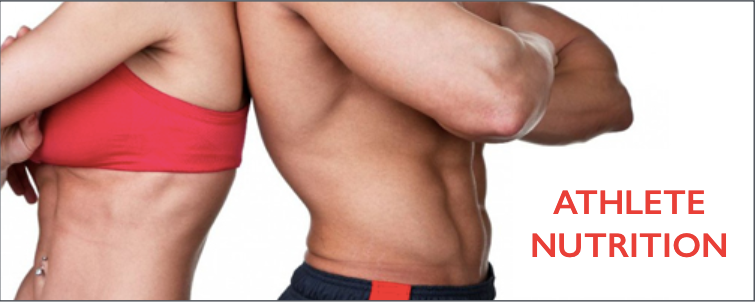When it comes to seeing progress from your workouts, nutrition is easily up to 75% of the game. Get your diet wrong and it won’t matter what you do in the gym, your performance won’t be moving forward as you had hoped you would.
The great news is that fixing your nutrition doesn’t have to be complicated. Using some proven strategies, you can tailor your nutrition to your training regime.
The result?
Remarkable progress like you’ve never seen before.
Good nutrition is what will turn a workout from good to great and get you crossing the finish line to reaching your goals.
Here are five smart steps you need to take.
Step 1: Choose Wild-Caught Salmon More Often
 Chances are, you already realize that protein is a must in any athletic diet plan. Protein provides the raw materials your muscles will use to rebuild themselves after a hard workout is performed.
Chances are, you already realize that protein is a must in any athletic diet plan. Protein provides the raw materials your muscles will use to rebuild themselves after a hard workout is performed.
This said, not all protein sources are created equally.
Of particular benefit is wild caught salmon. Salmon not only gives you all the essential amino acids you need, but in addition to that, it also provides you with an excellent dose of omega-3 fatty acids.
These omega-3 fatty acids are associated with reduced inflammation post-exercise, so they could help you recover faster between sessions. The more frequently you are able to train (while in a recovered state), the faster your progress will typically be.
Aim to eat wild caught salmon at least once, if not twice per week.
Step 2: Add A Quality Probiotic
 If you’re going to take the time to ensure that your diet is up to par, it’s vital that your body is able to properly utilize all the nutrients you’re providing it. Part of that comes down to the gut environment you maintain.
If you’re going to take the time to ensure that your diet is up to par, it’s vital that your body is able to properly utilize all the nutrients you’re providing it. Part of that comes down to the gut environment you maintain.
Your body requires a certain level of healthy ‘good’ bacteria in your digestive tract on a daily basis to keep your immune system strong and help assist with the breakdown and utilization of the foods you eat.
The problem is most people are currently lacking. Factors such as over-use of antibiotics coupled with a diet full of processed foods and too much psychological stress has our levels depleted.
To optimize yours, try supplementing with a quality probiotic. This will this help increase your energy level so that you can give more to each workout you do.
Step 3: Time Your Macros To Your Workout Session
 If you want your body to perform optimally in the gym, timing your nutrition is a must. You wouldn’t attempt to drive your car for an hour without ensuring gas is in the tank first, right? You shouldn’t do that with your body either.
If you want your body to perform optimally in the gym, timing your nutrition is a must. You wouldn’t attempt to drive your car for an hour without ensuring gas is in the tank first, right? You shouldn’t do that with your body either.
Prior to exercise, protein and carbohydrates are a must. Without them, you simply won’t reach the intensity levels you otherwise could have, sacrificing the progress you should be making. The body cannot break down and utilize dietary fat or stored fat fast enough to keep up with the demands that intense exercise places on it.
 While you may be able to do a steady state cardio session fine without eating first, if you plan on doing sprint/interval training or weight lifting, carbs are essential.
While you may be able to do a steady state cardio session fine without eating first, if you plan on doing sprint/interval training or weight lifting, carbs are essential.
Likewise, immediately after your workout, you’ll want to fuel your body again. Protein and carbs at this point will help to kick-start the repair process, while also restoring muscle glycogen levels.
Fail to eat these nutrients post-workout and your recovery will lag, meaning you may require more downtime from the gym.
Studies have demonstrated that serving whey protein with carbohydrates will help produce superior muscle glycogen restoration compared to just carbohydrates alone.
If you’re an athlete looking to stay lean, emphasize carbohydrates around the workout period with your protein. Then focus on keeping your other meals in the day lower carb, emphasizing fats over carbs. This will go a long way towards supporting maximum energy levels and body composition management.
Step 4: Practice The Single-Ingredient Rule
Excelling with proper nutrition is about much more than simply eating the right number calories and grams of each nutrient. While getting proper levels of carbohydrates, proteins, and fats is definitely critical if you hope to maintain your body weight, for truly great performance, you need more.
Eating the right foods is imperative to provide the micronutrients, which are the vitamins and minerals, your body needs to feel its best.
The best way to get these requirements met is through wholesome foods. By practicing the ‘single ingredient’ rule, you’ll make it easier to see what does and doesn’t belong in your diet plan.
If any food you’re considering adding to your diet contains more than one ingredient, that’s a sign that food is refined and not the most ideal option.
When foods are processed like this, nutrients are stripped away and you’re left with an empty source of calories. Obviously some processed foods are worse than others, but selecting unprocessed foods is always best.
Step 5: Don’t Shun Fat
 Finally, the last step to superior performance through smart nutrition is not neglecting your fat intake. Some athletes get into the thought pattern that dietary fat isn’t as beneficial to them as first, it won’t fuel intense exercise as well and second, too much of it could lead to body fat gains.
Finally, the last step to superior performance through smart nutrition is not neglecting your fat intake. Some athletes get into the thought pattern that dietary fat isn’t as beneficial to them as first, it won’t fuel intense exercise as well and second, too much of it could lead to body fat gains.
While it’s true that overdoing fat could lead to excess weight gain quicker than protein or carbs because of it’s caloric density (it contains over twice as many calories per gram as proteins or carbs do), this doesn’t mean you should avoid it.
Your body needs fats. The right types of fats will help keep your immune system strong, your energy and blood glucose stable, and most notably, your hormone levels optimized.
Diets that are too low in fat tend to cause a downward shift to testosterone levels, which is a key hormone driving physical performance in both men and women. While men do have far more of this hormone in their body than females do, it still is critical for both genders nonetheless.
Saturated fat, the type that most people avoid entirely, is the fat type that you’ll especially want to be consuming here as it more than any other variety influences testosterone production.
This doesn’t mean you now have a free pass to feast on bacon and cheeseburgers however. Do that and your weight gains will not be on your squat or bench press. Instead, focus on quality natural sources of saturated fat such as organic eggs, grass fed organic beef, and coconut oil.
These are the saturated fat sources that will provide you with added vitamins and minerals along with the saturated fat they’re giving you.
So there you have five easy-to-implement steps that you can take to optimize your physical performance, improve recovery from exercise, enhance your body composition, and feel your best.
The foods you put into your body with each meal will have a direct influence on the quality of your life. So ask yourself, are you maximizing your meals?
References:
Dorgan, Joanne F., et al. “Effects of dietary fat and fiber on plasma and urine androgens and estrogens in men: a controlled feeding study.” The American journal of clinical nutrition 64.6 (1996): 850-855.
Tartibian, Bakhtyar, Behzad Hajizadeh Maleki, and Asghar Abbasi. “Omega-3 fatty acids supplementation attenuates inflammatory markers after eccentric exercise in untrained men.” Clinical Journal of Sport Medicine 21.2 (2011): 131-137.
Morifuji, Masashi, et al. “Post-exercise carbohydrate plus whey protein hydrolysates supplementation increases skeletal muscle glycogen level in rats.” Amino acids 38.4 (2010): 1109-1115.

